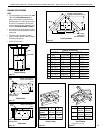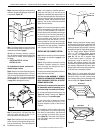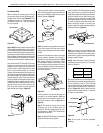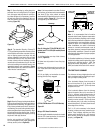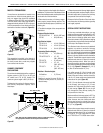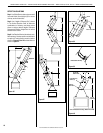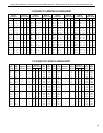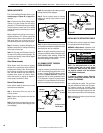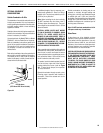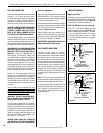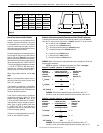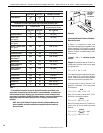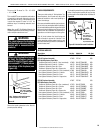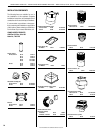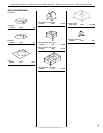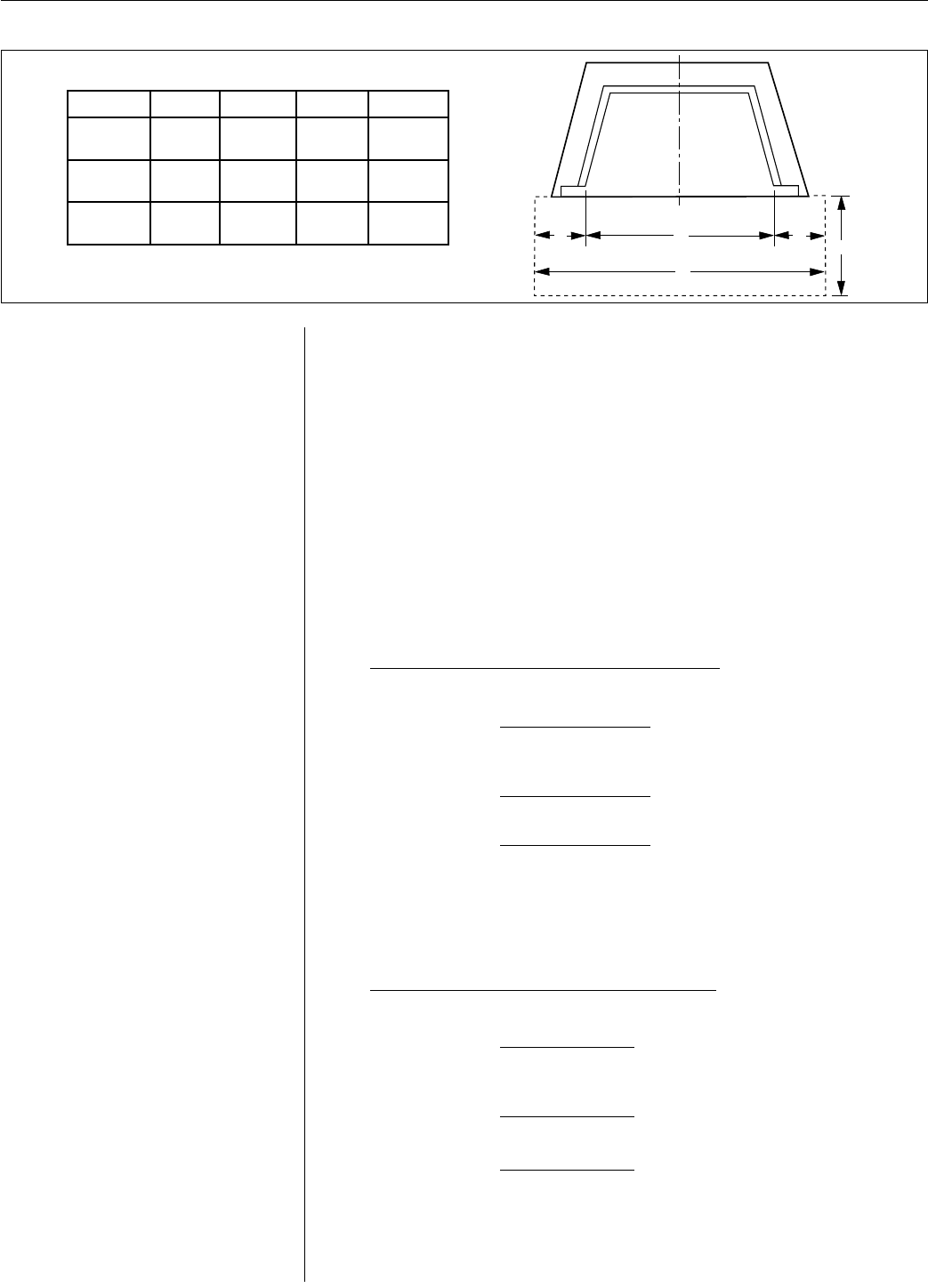
NOTE: DIAGRAMS & ILLUSTRATIONS ARE NOT TO SCALE.
21
LENNOX HEARTH PRODUCTS • ESTATE™ SERIES WOOD-BURNING FIREPLACES • MODELS EST-36, EST-42, EST-50 • INSTALLATION INSTRUCTIONS
Hearth Extensions and Wall Shields
A hearth extension must be installed with all
fireplaces. Its purpose is twofold: 1) to protect
a combustible floor in front of the fireplace
from both radiant heat and sparks; and 2) to
distinguish the prescribed hearth extension area
from other unprotected surfaces.
The hearth extension must extend beyond the
front at least 20" (508 mm) and both sides at
least 12" (305 mm) (Figure 47). Use a hearth
extension constructed of a durable noncombus-
tible material having an equal or better (lower k
value) insulating value of k = .84 BTU IN/FT
2
HR
°F or a thermal resistance that equals or exceeds
r = 1.19 HR °F FT
2
/BTU IN. With these values,
determine the minimum thickness/material
required using the formulas shown at right.
When using multiple materials, see the next
page.
Note: Any noncombustible material whose k
value is less than .84 or whose r value is more
than 1.19 is acceptable.
If the fireplace is installed on a combustible
floor, use the metal safety strips (provided) on
the oor extending half under the replace and
half under the hearth extension.
A wall shield is required where a continuous
perpendicular side wall is within 12" of the
fireplace opening (Figure 48). Use a 36" W
x 36" H wall shield constructed of a durable,
noncombustible material having an equal or
better (lower k value) insulating value than
k = .54 BTU IN/FT
2
HR °F. At no time may a
perpendicular side wall be located closer than
9" from the fireplace opening.
If replace is installed diagonally across a 90°
corner; no wall shields are required.
Figure 47
A
B
D
C
C
Methods of Determining Hearth Extension and Wall Shield Equivalents
To determine the thickness required for the alternate material, use the “k formula”
when the “k” value is known, and use the “r formula” when the “r” value is known.
k
M
= k value per inch of alternate material
r
M
= r value per inch of alternate material
T
M
= minimum thickness required for alternate material
T
S
= standard thickness of the alternate material
k
L
= k value per inch of listed material
r
L
= r value per inch of listed material
T
L
= minimum thickness of listed material
EXAMPLE: What is the minimum required thickness when using Micore 160 for the
replace hearth extension?
NOTE: An asterisk (*) indicates a value taken from Table 1 (next page).
Using the “k formula” (when the “k” value is known):
Minimum
k-value (per Inch) of
Specified min.
thickness of =
alternate material (k
M
)
x thickness
alternate
k-value (per inch)
of listed
material (T
M
)
of listed material (k
M
)
material (T
L
)
T
M
(inches) =
k
M x T
L
*.84
T
M
(inches) =
*.35
x 1"
*.84
.416 (inches) = .416 x 1"
ANSWER: The minimum required thickness of the Micore 160 is .417";
therefore, round up to nearest standard thickness available, which is 1/2".
Using the “r formula” (when the “r” value is known):
Minimum r-value (per inch) Specified min.
thickness of = of listed material x thickness
alternate
r-value (per inch)
of listed
material
of alternate material
material
T
M
(inches) =
r
L x T
L
r
M
T
M
(inches) = *1.19 x 1"
*2.86
.416 (inches) = .416 x 1"
ANSWER: The minimum required thickness of the Micore 160 is .417";
therefore, round up to nearest standard thickness available, which is 1/2".
Models
A B C D
EST-36
20"
(508mm)
36"
(914mm)
12"
(305mm)
60"
(1524mm)
EST-42
20"
(508mm)
42"
(1066mm)
12"
(305mm)
60"
(1524mm)
EST-50
20"
(508mm)
50"
(1270mm)
12"
(305mm)
74"
(1880mm)



